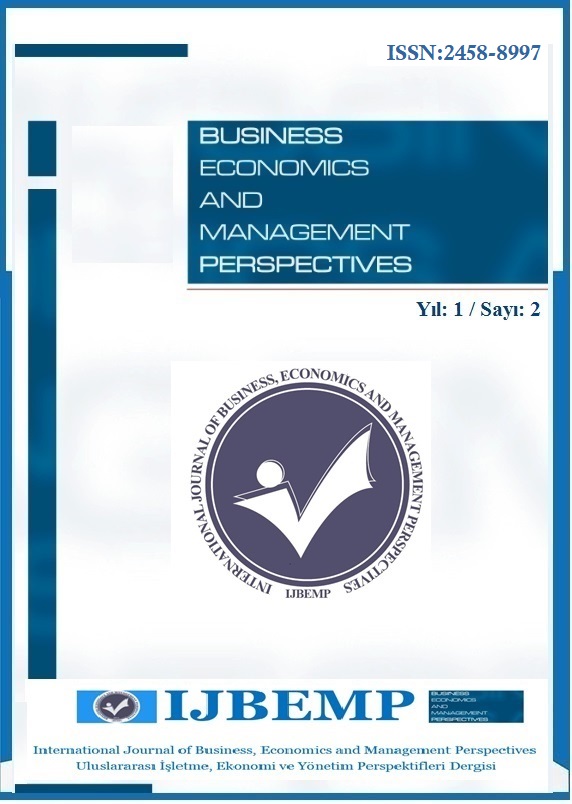TÜRKİYE VE ABD’DEKİ MUHASEBE EĞİTİMİNİN KARŞILAŞTIRILMASI: MARMARA ÜNİVERSİTESİ VE THE UNIVERSITY OF TEXAS ÖRNEĞİ
Author :
Abstract
Bir ülkenin muhasebe eğitimine verdiği önemin ve muhasebe eğitim kalitesinin en önemli göstergeleri üniversitelerinde yer alan eğitim programları içerisinde, muhasebe derslerinin sayısı, içeriği ve kredisidir. Dolayısıyla ülkeler arasında muhasebe eğitimlerinin karşılaştırılabilmesi için bu üç temel faktör göz önünde bulundurulmalıdır. Bu çalışmanın amacı, Türkiye ve Amerika Birleşik Devletleri’nde faaliyet gösteren yüksek öğretim kurumları arasındaki lisans düzeyinde muhasebe eğitimindeki benzerlikleri ve farklılıkları ortaya koymaktır. Bu amaçla, Türkiye ve ABD’de muhasebe eğitiminde öne çıkan Marmara Üniversitesi, İktisadi ve İdari Bilimler Fakültesi, “İşletme Bölümü” ile The University of Texas at Austin kampüsü içerisinde yer alan “McCombs School of Business”taki muhasebe derslerinin sayıları, içerikleri ve kredileri lisans bazında ayrı ayrı incelenmiştir. Elde edilen sayısal veriler üniversiteler bazında analiz edilmiş ve her iki ülkenin lisans düzeyindeki muhasebe eğitimleri bu veriler ışığında genel olarak karşılaştırılmıştır.
Keywords
Abstract
The most crucial indicators of the importance given to accounting education in a certain country and its calibre are the number of accounting lectures in the curriculum of the programs offered in the universities and the content and credit of these lectures. Therefore, in order these accounting educations to be compared among countries these three fundamental factors should be taken into consideration. The purpose of the study is to present the similarities of and differences between undergraduate-level accounting education in the higher education institutions located in Turkey and the United States of America. For this reason, the numbers, contents and credits of accounting classes of Marmara University Economics and Administrative Faculty “Business Department” and the “McCombs School of Business” in the campus of The University of Texas at Austin as prominent universities of Turkey and United States, examined carefully at undergraduate levels separately. The quantitative data acquired are analysed on the basis of universities and the undergraduate accounting educations offered in both countries are compared within the light of these data.
Keywords
- BANAR, Kerim - ASLAN, Ümmühan (2009), “İktisat Politikalarının, Yasal Politikaların ve Teknolojik Gelişmelerin Yüksek Öğretimde Muhasebe eğitimine Olan Etkisi, EİTİA ve Anadolu Üniversitesi İ.İ.B.F Örneği,” Muhasebe Finansman Dergisi, No: 42, p. 90 -102
- BATES, L., Homer – WALDRUP, E., Boby - CALHOUN, H., Charles (2008), “Ethics Education in US Ac- counting Practice – A Status Report”, Allied Academies International Conference, Proceedings of the Academy of Accounting and Financial Studies, Vol. 13, No. 1, p. 7-12.
- DEBRENCY, Roger - FAREWELL, Stephanie (2010), “XBRL in the Accounting Curriculum”, Issues in Ac- counting Education, Vol. 25, No. 3, p. 379-403.
- DİNÇ, Engin (2008), “Meslek Seçiminde Etkili Faktörlerin İncelenmesi: Meslek Yüksek Okulu Muhasebe Pro- gramı Öğrencileri Üzerine Bir Araştırma”, Kocaeli Üniversitesi, SBE Dergisi, No: 16, p. 90-106
- DURSUN, Adem (2006), “Muhasebe Eğitiminde Kalite Arayışı”, Seçkin Yayıncılık, Ankara.
- GÖKÇEN, Gürbüz (1998), “Uygulamacıların Muhasebe Eğitiminden Beklentileri”, Muhasebe Finansman Dergisi, Year 7, No. 9, p. 43-50.
- GÜCENME GENCOĞLU, Ümit – ARSOY POROY, Aylin (2006), “Accounting Education In The History of Turkish Republic,” http://archive.ismmmo.org.tr/docs/malicozum/malicozum_kongreozel/5%20umit%20gucenme_aylinpor oyarsoy%20ing.pdf, Last Access: 12/01/2012.
- GÜCENME GENCOĞLU, Ümit (2010) “Türkiye’de Harf Devriminin Muhasebe Eğitimi ve Muhasebe Uygu- lamalarına Etkisi,” Kilis 7 Aralık Üniversitesi, İİBF, Akademik Araştırmalar ve Çalışmalar Dergisi, Vol. 1, No. 1, January 2010, p. 30-37.
- GÜVEMLİ, Oktay (1995), “Türk Devletleri Muhasebe Tarihi Osmanlı İmparatorluğuna Kadar,” Vol. 1, Avcıol Basım Yayın, İstanbul, p. 212-411.
- GÜVEMLİ, Oktay (2001), “Türk Devletleri Muhasebe Tarihi Cumhuriyet Dönemi XX. Yüzyıl,” Vol. 4, Avcıol Basım Yayın, İstanbul.
- HACIRÜSTEMOĞLU, Rüstem (2006), “Bilgi Çağında Muhasebe Eğitimi”, Muhasebe Bilim Dünyası Dergisi, No.3, p. 1-6.
- http://www.ed.gov, Last Access: 18.02.2012.
- http://www.McCombs.utexas.edu/About/Our-School.aspx, Last Access: 18.02.2012
- http://www.aacsb.edu, Last Access: 08.02.2012.
- JACKSON, Shaun - DURKEE, David (2008), “Incorporating Information Literacy into the Accounting Curricu- lum”, Accounting Education: An International Journal, Vol. 17, No. 1, p. 83–97.
- KAYA, İdil (1999), “Geleceğin Muhasebe Eğitimi: Gelişen Meslek İçin Hazırlanmak”, İstanbul Üniversitesi Siyasal Bilgiler Fakültesi Dergisi, No. 20, p. 61-81.
- KRANACHER, Mary-Jo - MORRIS, W., Bonnie – PEARSON, A., Timothy - Jr. Riley, A., Richard (2008), “A Model Curriculum for Education in Fraud and Forensic Accounting”, Issues In Accountıng Educatıon, Vol. 23, No. 4, p. 505–519.
- SUNDEM, Gary Lewis (1999), “The Accounting Change Commission: Its History and Impact”, American Edu- cation Change Commission and American Accounting Association, Vol.15, Chapter 1, Sarasota.
- TEKŞEN, Ömer - TEKİN, Muzaffer, GENÇTÜRK, Mehmet (2010), “Muhasebe Eğitiminin Değerlendirilmesi: Mehmet Akif Ersoy Üniversitesi'ne Bağlı Meslek Yüksekokulları Öğrencileri Üzerine Bir Araştırma”, Muhasebe ve Finansman Dergisi, No: 46, p. 100-112.
- Türmob Haber (2004), “CPA Mesleğine Girişte Zorlaşan Şartlar”, Year 1, No. 2, p. 5.
- WYHE, Glenn, Van (2007), “A History of US Higher Education in Accounting, Part I: Situating Accounting within the Academy”, Issues in Accounting Education, Vol. 22, No. 2, p.165-181.
- WYHE, Glenn Van (2007), A History of US Higher Education in Accounting, Part II: Reforming Accounting within the Academy”, Issues in Accounting Education, Vol. 22, No. 3, p. 481-501.
- ZAİF, Figen (2004), “Muhasebe Eğitiminde Yeni Yaklaşımlar”, XIII. Türkiye Muhasebe Eğitimi Sempozyumu Bildiri Kitabı, Antalya, p. 53-62.
